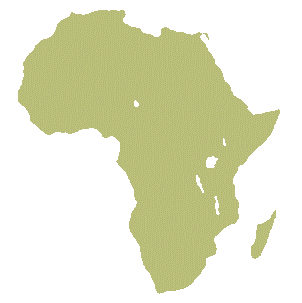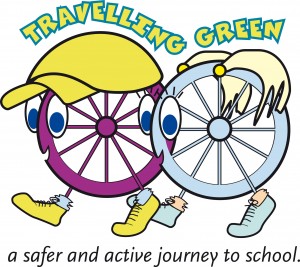

Global Citizenship blog
 Design a poster, picture, graphic that relates to one of the main themes outlined in the Ready Scotland/ Ready for Emergencies resource (eg. severe weather, flooding etc). This could be a warning sign, campaign poster or image of a recent event.
Design a poster, picture, graphic that relates to one of the main themes outlined in the Ready Scotland/ Ready for Emergencies resource (eg. severe weather, flooding etc). This could be a warning sign, campaign poster or image of a recent event.
14 winning entries will be selected for inclusion in this year’s ‘Ready for Winter’ campaign calendar with a number of other prizes on offer as part of the competition.
Also every contributor will receive a free copy of the calendar.
More information on this including terms and conditions, submission address and deadline as we as topics and entry categories are contained in the following attachments: 2012_Resilience Week_ Calendar competition - terms and conditions for entries 2012-13_ Resilience Week_ Calendar Competition_Topics
The official launch of the competition will be on Wednesday, 13 June 2012 .
If you wish to pre-register for the competition please email [email protected]
 Its the time of the year when many teachers are planning ahead, both for the summer school holidays and for the next school annual cycle. And every year a number of Scottish teachers decide to spend part of their time in Africa as volunteers who can make a contribution to development and improvement of school education in a developing country. Some will go for short periods, others will commit to a longer stay, and they will do this as individuals or as part of a group, through a link organised by a local church or a charity. And as a consequence each one will return to Scotland better able to demonstrate and champion global citizenship among the young people they teach here.
Its the time of the year when many teachers are planning ahead, both for the summer school holidays and for the next school annual cycle. And every year a number of Scottish teachers decide to spend part of their time in Africa as volunteers who can make a contribution to development and improvement of school education in a developing country. Some will go for short periods, others will commit to a longer stay, and they will do this as individuals or as part of a group, through a link organised by a local church or a charity. And as a consequence each one will return to Scotland better able to demonstrate and champion global citizenship among the young people they teach here.
Two examples:
International development charity Voluntary Service Overseas VSO currently has an urgent need for education professionals to take up volunteering placements in Ethiopia, starting this September 2012. VSO volunteers are working at a number of different levels in Ethiopia to help improve teacher training and education management, increasing the quality and relevance of education that children receive. Senior teachers and education managers are working with national government institutions supporting the development and implementation of national policies like teacher training programmes and monitoring and evaluation systems. Experienced teachers are working within regional education and teacher education institutions to help deliver training programmes and develop the skills of their local colleagues. Many Scottish teachers have gained their experience through VSO. This short YouTube video clip features Edinburgh teacher Dhamayanthi talking about her volunteering experience in Ethiopia. Contact VSO about Ethiopia and other opportunities to use your skills to help children in developing nations to get a better start in life.
Another kind of opportunity is provided by the Global Teachers programme run by charity Link Community Development Scotland, now solely funded by the Wood Family Trust. This summer a group of teachers and headteachers from Aberdeenshire will spend five weeks in Ugandan schools, helping local teachers to employ better pedagogy, and improve school leadership and planning. An article in TESS describes the preparatory phase for the Scots and the kind of positive outcomes the individuals hope for.
 Storytelling is part of human existence around the world in every culture, and encouraging children to develop and tell stories is a frequently-used form of education. The Storylines methodology is well-established in Scottish schools, and involves children creating their own fictional communities in which their stories will be set. In the hands of imaginative teachers, this approach lends itself to some very thoughtful learning about global citizenship.
Storytelling is part of human existence around the world in every culture, and encouraging children to develop and tell stories is a frequently-used form of education. The Storylines methodology is well-established in Scottish schools, and involves children creating their own fictional communities in which their stories will be set. In the hands of imaginative teachers, this approach lends itself to some very thoughtful learning about global citizenship.
WOSDEC has worked with Glasgow City Council and Strathclyde University to develop a Global Storylines project, which has been trialled in Glasgow primary schools. It used Storylines in conjunction with drama to enable learners to explore challenging global issues such as peace and conflict, interdependence, land ownership, farming and food security.
A delegation from Glasgow will participate in the international conference ‘Storyline in Iceland 2012′ this summer, sharing their experience of using this approach in Scotland and also learning from the experience of teachers in other nations. And a recent dissemination event at Strathclyde University helped spread the message among teachers from a number of Scottish local authorities.
For teachers who want to know more, there’s also an article about the Global Storylines project in the Summer 2012 edition of the excellent ‘Stride‘ magazine, available for free download from the IDEAS network website.
For teachers who might consider how to use Storyline to support Language teaching, the Creative Dialogues website might prove useful.
 Yesterday the national finals of the Euroquiz 2012 competition were held in the Scottish Parliament Debating Chamber in Edinburgh. Congratulations to St Mary’s Primary School, Duntocher, West Dunbartonshire, whose team won this year’s event; and well done to all the teams of Primary 6 pupils from around Scotland who took part in the regional heats and in the finals. The knowledge displayed by the students, and their skills in information retrieval, were very impressive for all of us who saw them in action at the various stages of the competition.
Yesterday the national finals of the Euroquiz 2012 competition were held in the Scottish Parliament Debating Chamber in Edinburgh. Congratulations to St Mary’s Primary School, Duntocher, West Dunbartonshire, whose team won this year’s event; and well done to all the teams of Primary 6 pupils from around Scotland who took part in the regional heats and in the finals. The knowledge displayed by the students, and their skills in information retrieval, were very impressive for all of us who saw them in action at the various stages of the competition.
The event was recorded by Scottish Parliament TV, and the archive video footage is now available for viewers on their website.
The Euroquiz competition has been organised annually by the Scottish European Educational Trust for some years, and continues to attract mass participation and enhance learning about aspects of the European Union.
Did you ever want to be on air and run your own radio show? This is your chance: East Renfrewshire Council in conjunction with Pulse Radio 98.4 will celebrate young peoples’ engagement and voice by inviting pupils and youth clubs from the 12 to 14 June to participate in a Youth Radiothon.
Here is how you can join the event:
You will need a group of pupils or young people (maximum per group is 5) who would like to host a 45 minute radio show. Each group will be required to come up with content for their show. They could chat about things that are going on in your school, or talk about their interests and hobbies, or discuss issues that they feel strongly about. If you need any assistance compiling the content of the show Zoe Nisbet (Partnership Development Officer, East Renfrewshire council) will visit your school or organisation and talk to you before the event. We would also require the young people to come up with a short ‘play list’ of around 6 songs that would be played during their show on the Radiothon.
All schools and organisations taking part will receive a certificate for their participation in this event, as will the individual young people. There will be different categories of awards to be won for the radio shows. We will be approaching different sponsors regarding this event and are more likely to gain sponsorship if we have a diverse and wide array of participation.
If you are interested in this initiative please email Zoe Nisbet: [email protected]
With a month to go there is still time to take part in the inaugural documentary entitled “The UK’s Best Sustainable Schools”.
This film is being produced by Cycling4SEEd who will be visiting (by bicycle and other sustainable means of travel) schools from Lands End to John O’Groats and capturing on film the freshest ideas, the best practice, the most exciting plans and hopefully even the most exciting results of sustainability in schools.
Cycling4SEEd cannot visit every school in the country but there are still ways for you and your schools to be part of this very important film to encourage all schools to take up sustainability:
For details of how to get involved in any of these activities, please visit the SEED website at www.se-ed.org-uk. You can also follow the story of Cycling4SEEd’s journey along the backbone of the UK as they visit schools, hear stories, see sustainable projects and share ideas.
For all your enquiries, please email [email protected].
A few very different opportunities for teachers to reflect on how to use film viewings and film-making as a tool for supporting global citizenship education:
With a good fit to current work in schools around Games Legacy and the Olympics, the Edinburgh Filmhouse has a schools-only showing of the African film ‘Town of Runners’ on Monday 28th May. This showing has been organised by Take One Action film festival, a charity which promotes the different perspectives offered by films from developing countries. The film tells the story of two Ethiopian girls struggling to become athletes in a town which has a history of producing great distance runners, and is reviewed in the Guardian.
Take One Action is also seeking secondary schools to participate in its Young Heroes action project between June and December 2012. It’s a residential and follow-on screening project for young people aged 15-21 and their educators or youth workers, and builds their capacity to consider global issues and use film to encourage wider debate.
Thirdly, the Northern Lights project aims to create Scotland’s first ever mass participation documentary, an innovative way to build a movie about contemporary Scotland. Basically it will be composed, and edited into a final feature-length film, from videos made by people all over the country and contributed to a common pool of rich material. Read this blog post for more detail and weblinks.
![]() SQA has developed a new framework of broad, generic skills. The Skills for Learning, Skills for Life and Skills for Work framework is derived from Building the Curriculum 4.
SQA has developed a new framework of broad, generic skills. The Skills for Learning, Skills for Life and Skills for Work framework is derived from Building the Curriculum 4.
The framework outlines definitions of the five broad areas of generic skills that are essential for qualification development.
Dowload Skills for Learning, Skills for Life and Skills for Work Framework
The five broad areas are:
This new skills framework is being used in the development of qualifications that support Curriculum for Excellence. It will also assist with the design of assessment and learning and teaching methods. These skills sit alongside knowledge, understanding and subject based skills.
For more info see http://www.sqa.org.uk/sqa/45395.html
 Finland, a country which is renowned for having one of the world’s best performing education systems, has developed proposals to strengthen the teaching of citizenship education and the position of environmental education and collaboration between the subjects.
Finland, a country which is renowned for having one of the world’s best performing education systems, has developed proposals to strengthen the teaching of citizenship education and the position of environmental education and collaboration between the subjects.
It is proposed that environmental studies would be taught in year-classes 1–6 as an integrated subject comprising the areas of biology, geography, physics, chemistry and health education, including the viewpoint of sustainable development. In year-classes 7–9 of basic education, the teaching would be divided into separate subjects similarly to today.
Cross-curricular themes would be implemented in year-classes 7–9, with a reservation of 1 weekly lesson per year. This proposal aims to improve the integrity of education and to increase cooperation between subjects to give better possibilities of responding to topical educational challenges, including those of life management, teaching of good manners, democracy education, entrepreneurial education, internationality and sustainable development in teaching and to provide better opportunities for using such methods as drama in teaching.
For more information visit: http://www.minedu.fi/OPM/Julkaisut/2012/Tulevaisuuden_perusopetus.html?lang=en
 Travelling Green is a complete six-week programme aimed at P5 level; it comes with lesson plans and wall charts. It gives children and their parents the skills and confidence to walk to school. Walking to school is good for children’s development as well and their physical and mental health. Travelling Green has strong Health and Wellbeing Curriculum links covering topics like for example; the circulatory and respiratory systems.
Travelling Green is a complete six-week programme aimed at P5 level; it comes with lesson plans and wall charts. It gives children and their parents the skills and confidence to walk to school. Walking to school is good for children’s development as well and their physical and mental health. Travelling Green has strong Health and Wellbeing Curriculum links covering topics like for example; the circulatory and respiratory systems.
For more information, see link below;
http://www.sustrans.org.uk/what-we-do/safe-routes-to-schools/whats-in-your-area/scotland/travelling-green
Recent research has shown that children who do Travelling Green are generally more physically active than children who do not. Increasing children’s daily physical activity is essential for tackling the obesity epidemic, one of the key challenges facing Scotland’s population as described in Scotland’s Chief Medical Officer’s annual report. We need to make active modes of travel children’s first choice and make physical activity an everyday habit for Scottish children.
It has been shown that active children become active adults. Physical activity has recently been made a national indicator in Scotland. Walking to school is an excellent everyday opportunity for children to get the recommended amount of physical activity which is vital for maintaining their health and wellbeing. In addition, active children do better at school. When asked children want to be more physically active and they want to travel actively to school. Travelling Green is a resource that increases children’s physical activity in small manageable steps.
The resource was popular with teachers; they gave the following feedback;
“Well thought out and children benefited from it, many changed their route and started walking together in groups”.
“Easy to use with lots of additional resources and support materials”
“Good resource, making cross-curricular links”.
The Travelling Green resources were developed in partnership by West Dunbartonshire Council and are available for free to all Scottish schools.
There are also free Travelling Green flipcharts for interactive whiteboards available from Promethean Planet (see included step by step guide). We also include a guide for the Travelling Green resources and a flyer to circulate to your schools.
To get the resources sent to your school contact;
[email protected] 0131 346 9777
Find us on